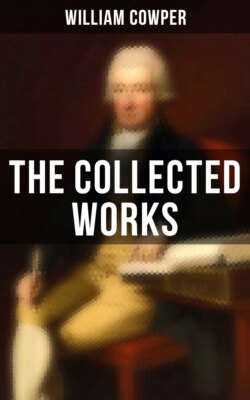Читать книгу The Collected Works - William Cowper - Страница 46
На сайте Литреса книга снята с продажи.
TO MRS. COWPER.
ОглавлениеTable of Contents
March 5, 1770.
My brother continues much as he was. His case is a very dangerous one—an imposthume of the liver, attended by an asthma and dropsy. The physician has little hope of his recovery, I believe I might say none at all, only, being a friend, he does not formally give him over by ceasing to visit him, lest it should sink his spirits. For my own part, I have no expectation of his recovery, except by a signal interposition of Providence in answer to prayer. His case is clearly beyond the reach of medicine; but I have seen many a sickness healed, where the danger has been equally threatening, by the only Physician of value. I doubt not he will have an interest in your prayers, as he has in the prayers of many. May the Lord incline his ear and give an answer of peace. I know it is good to be afflicted. I trust that you have found it so, and that under the teaching of God's own Spirit we shall both be purified. It is the desire of my soul to seek a better country, where God shall wipe away all tears from the eyes of his people; and where, looking back upon the ways by which he has led us, we shall be filled with everlasting wonder, love, and praise.
I must add no more.
Yours ever,
W. C.
The sickness and death of his learned, pious, and affectionate brother, made a very strong impression on the tender heart and mind of Cowper—an impression so strong, that it induced him to write a narrative of the remarkable circumstances which occurred at the time. He sent a copy of this narrative to Mr. Newton. The paper is curious in every point of view, and so likely to awaken sentiments of piety in minds where it may be most desirable to have them awakened, that Mr. Newton subsequently communicated it to the public.[25]
Here it is necessary to introduce a brief account of the interesting person whom the poet regarded so tenderly. John Cowper was born in 1737. Being designed for the church, he was privately educated by a clergyman, and became eminent for the extent and variety of his erudition in the university of Cambridge. The remarkable change in his views and principles is copiously displayed by his brother, in recording the pious close of his life. Bene't College, of which he was a fellow, was his usual residence, and it became the scene of his death, on the 20th of March, 1770. Fraternal affection has executed a perfectly just and graceful description of his character, both in prose and verse. We transcribe both as highly honourable to these exemplary brethren, who may indeed be said to have dwelt together in unity.
"He was a man" (says the poet in speaking of his deceased brother) "of a most candid and ingenuous spirit; his temper remarkably sweet, and in his behaviour to me he had always manifested an uncommon affection. His outward conduct, so far as it fell under my notice, or I could learn it by the report of others, was perfectly decent and unblamable. There was nothing vicious in any part of his practice, but, being of a studious, thoughtful turn, he placed his chief delight in the acquisition of learning, and made such proficiency in it, that he had but few rivals in that of a classical kind. He was critically skilled in the Latin, Greek, and Hebrew languages; was beginning to make himself master of the Syriac, and perfectly understood the French and Italian, the latter of which he could speak fluently. Learned however as he was, he was easy and cheerful in his conversation, and entirely free from the stiffness which is generally contracted by men devoted to such pursuits."
"I had a brother once:
Peace to the memory of a man of worth!
A man of letters, and of manners too!
Of manners sweet, as virtue always wears,
When gay good humour dresses her in smiles!
He grac'd a college, in which order yet
Was sacred, and was honoured, lov'd, and wept
By more than one, themselves conspicuous there!"
Another interesting tribute to his memory will be found in the following letter.
